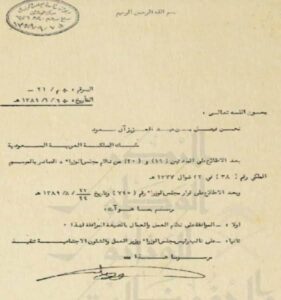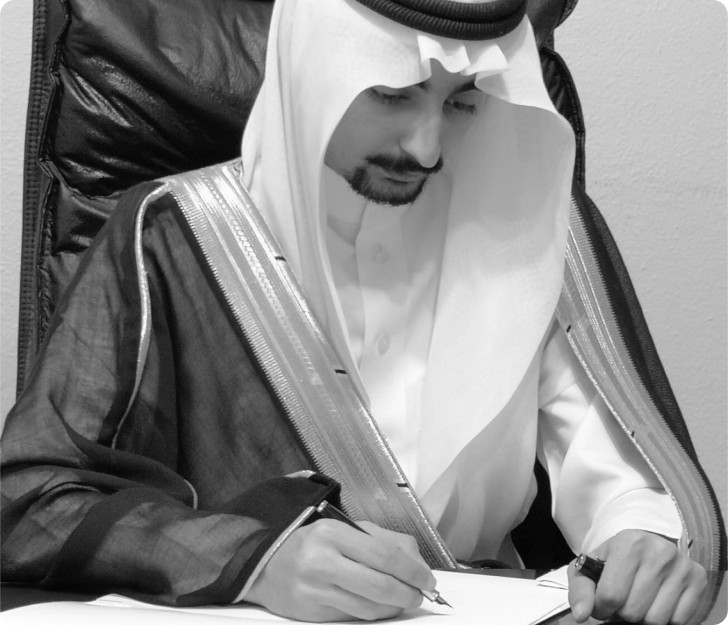Consensual Settlement in Saudi Law: A Comprehensive Overview
Consensual settlement, or Sulh, is an essential aspect of the Saudi justice system, founded as a result of the Preventive Justice Initiative and is part of a national transformation known as Vision 2030. It is a form of dispute resolution that emphasizes agreement and creates a middle ground between the parties involved. This article will delve into the modern perspective of consensual settlement applications in Saudi law, its benefits, and its role in fostering harmonious transactions with more stability.
Understanding Consensual Settlement
In Saudi law, consensual settlement is a legal mechanism that allows disputing parties to resolve their differences amicably. It is based on the Islamic principle of Sulh, which encourages reconciliation and peace.
From a legal professional’s perspective, consensual settlement is based on consensus between all parties. It is a special type of contract where the parties agree to resolve a particular dispute or avoid a potential one in the future by waiving some corresponding obligations. This process is overseen by a duly authorized individual capable of certifying the agreement, thereby establishing its final status and rendering it indisputable.
Once an agreement is reached, it is formalized in a settlement contract. This contract is legally binding and enforceable by Saudi courts, providing a secure and reliable outcome for the parties involved.
Consensual settlement is not just a legal mechanism that identifies who wins and loses in the conflict, but a reflection of the societal values of Saudi Arabia. It aligns with the principles of Islamic law, which emphasize peace, harmony, and mutual respect. Moreover, it supports the goals of Saudi Vision 2030, contributing to the creation of a vibrant society and a thriving economy characterized by stability, transparency, and integrity.
Consensual settlement is about treatment in good faith. Therefore, it creates a stimulating environment for the completion of contracts that is healthy and free of toxic practices.
This method of dispute resolution is prevalent in various legal areas, including business law, family law, and civil law.
The Process of Consensual Settlement
The process of consensual settlement in Saudi law involves negotiation between the disputing parties. They work together to reach a mutually beneficial agreement, often with the assistance of a mediator. This agreement is then formalized in a settlement contract, which is legally binding and enforceable by Saudi courts.

Global digital development has increased online amicable settlement procedures via the online platform (https://taradhi.moj.gov.sa/).
All financial, labor, family, commercial, and other issues are now referred to this platform before the dispute is brought before the judiciary. The transcripts of this rostrum serve as the enforceable judgment.
Owing to the evolution of business practices in the Kingdom and the completion of the legislative structure, this step has reduced Riyadh’s trade disputes from 26,000 per year to 800 compared to 2023 statistics.
Benefits of Consensual Settlement
Consensual settlements have become one of the main means of dispute resolution and have contributed to a significant role in reducing the number of commercial cases from 26,000 per year to 700 by the end of 2024.
Firstly, Saudi society has been built on the foundations of stability and harmony. The consensual settlement has contributed to strengthening these foundations and enabling preventive justice. Litigation is no longer the first option for traders and members of the community, but mediation and alternative settlement are first and foremost.
Secondly, consensual settlement is efficient. It bypasses the need for lengthy and costly court proceedings, saving valuable time and resources for all parties involved. This is especially true after judicial fees are applied to cases in the courts by Royal Decree No. (M/16) of 23 August 2021.
Lastly, the consensual settlement provides security and reliability. The agreements reached are formalized in a legally binding settlement contract, which is enforceable and indisputable by Saudi courts. This gives the parties involved confidence that the agreed-upon terms will be upheld, reducing the risk margin that could arise if the proceedings continue. This includes the judge’s power to evaluate evidence, accept witnesses, and adapt the contract`s legal system.
Consensual Settlement and Saudi Vision 2030
The Ministry of Justice has received great attention from the Government of Saudi Arabia. The Government has allocated 38 initiatives for the governance and development of the justice facility.
These initiatives include the operationalization of the consensual settlement system, which seeks to bring about a qualitative shift in this area through comprehensive governance to become the socially and economically preferable alternative to the settlement of various types of disputes (financial, family, commercial, engineering, real estate, banking, medical, etc.). Through legislative empowerment, digital transformation, development, and continuous training of human resources, these initiatives work to improve the operational efficiency of the justice facility to ensure the enforcement of the constitutionality and rights of society.
(For more details, please visit: https://www.moj.gov.sa/ar/Ministry/vision2030/Pages/Initiative.aspx)
Consensual settlement aligns with the goals of Saudi Vision 2030, which aims to transform the Kingdom’s economy and society. By promoting peaceful dispute resolution, it supports the creation of a vibrant society and a thriving economy. It also contributes to the goal of improving the efficiency and effectiveness of the legal system.
Furthermore, consensual settlement plays a crucial role in Saudi law, promoting peace, harmony, and societal cohesion. It aligns with the principles of Islamic law and the goals of Saudi Vision 2030, making it a vital component of the Kingdom’s legal landscape.
How the Attorneys at Khalaf Bandar | International Advisors PLLC Can Help
While conducting your own business in Saudi Arabia, you may encounter problems or disagreements. To avoid financial burdens that may arise for the duration of the dispute, you must consider a settlement as your first option.
Khalaf Bandarhas had the privilege of participating in many friendly settlement hearings in various types of cases across multiple industries and practice areas. Therefore, our firm has the exact experience you need when you do business in Saudi Arabia.
Whether you are in Saudi Arabia or abroad and want to settle an existing dispute or avoid a potential dispute, we are the law firm that can help you. Contact us now to book your consultation.



